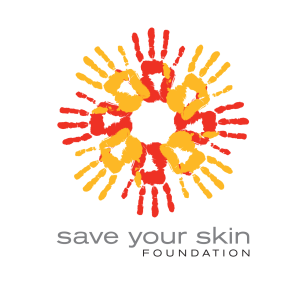Kirk LaPointe’s does a daily reflection, and recently did a reflection on melanoma cancer. Here is the segment, featuring Save Your Skin Foundation Spokesperson Natalie Richardson and Dr. Jason Rivers.
A Skin Cancer Survivor’s Story:
As the warm weather approaches, so do the warnings about skin cancer. May is Melanoma Awareness Month, and this morning on Our City, Natalie Richardson, Spokesperson for Save Your Skin Foundation, joined Kirk LaPointe to share her story. Richardson is a mother of identical twins, writer, and melanoma survivor. When diagnosed in 2014, Richardson said her reaction was that it was “just skin cancer.” Today, after going through multiple surgeries, immunotherapy on a clinical trial, and experiencing the devastating impact the condition can have, she regrets this misperception. “I’m afraid for the potential for a shortened life. I don’t want to miss my kids growing up.” Richardson now advocates to raise awareness about this deadly disease and has been sharing her journey on her blog, The Impatient Patient. Richardson, whose daughter was the one who initially encouraged her to go get a suspect mole checked out, is also a spokesperson for the Save Your Skin Foundation of Canada. She encouraged people to be vigilant about their health. “Look after yourself, or you’re not going to be there to look after others.”
Also on the show this morning was Dermatologist Dr. Jason Rivers of Pacific Dermaesthetics. He talked about common misconceptions around skin cancer. Asked whether he thinks there needs to be more awareness about the danger of skin cancer, he said “we’ve been doing public education programs for years … but some people don’t take heed. Especially boys age 18-24.” LaPointe noted that some people avoid sunscreen because they are concerned about the chemical content. Rivers responded, “There are studies that show that certain chemicals in some sunscreens can leech through the skin & cause hormone destruction, but to this point in time nobody has shown there is no risk of skin cancer.” However, Rivers noted that sunscreen should be used as an “adjunct” to sun protection. “No sunscreen is complete” he said. Instead – people need to slap on a hat and stay out of the noon-day sun. Apparently – the main prescription is for common sense.
To hear the full interview – listen here: http://bit.ly/1SWhrfU





